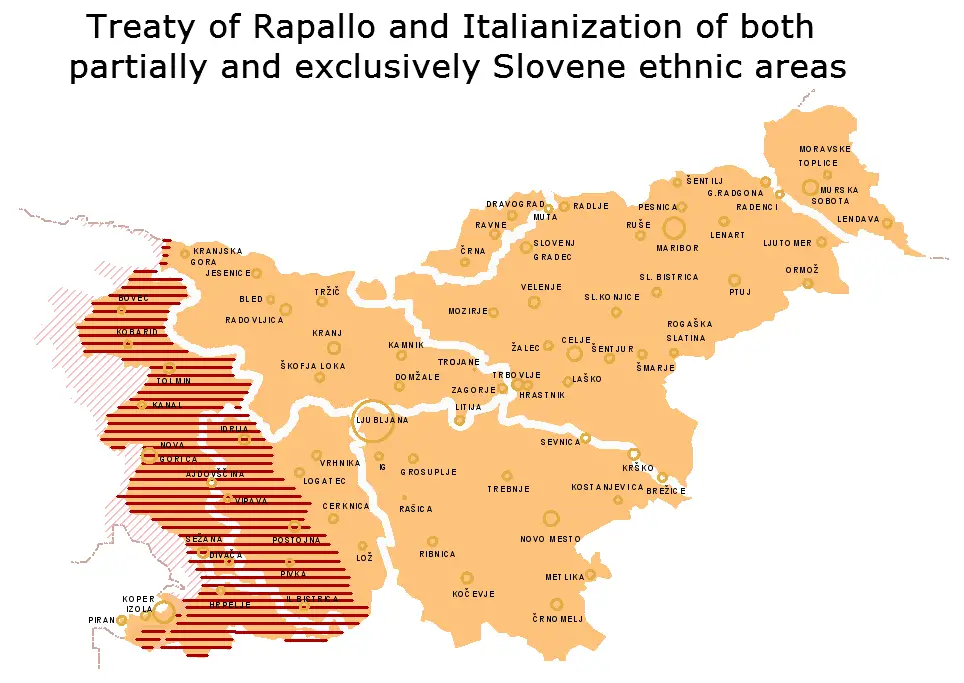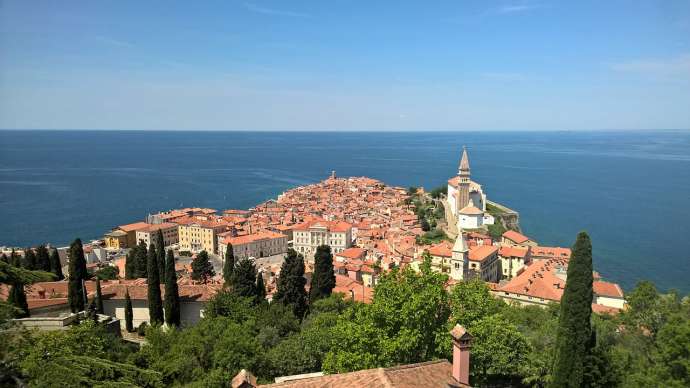STA, 15 September 2020 - Primorska Reunification Day is a holiday which expresses respect for generations of people from Primorska and gratitude to them for their national pride, resilience, resistance against Italianisation and Fascism and for their loyalty to Slovenian identity, Prime Minister Janez Janša said in a message issued on the public holiday.
The holiday, observed on 15 September, does not connect only the people of the western Primorska region but the entire nation, Janša said in the message.
"We are celebrating the power of survival of the nation, which history put through a number of ordeals. Today's holiday is also a holiday of love of the homeland."
It is thanks to many Primorska patriotic organisations and individuals that the region remained committed to Slovenia throughout history, Janša added.
"Their work, efforts, sacrifice and fight for Slovenian identity significantly contributed to Primorska being returned to the homeland on 15 September 1947, when the peace treaty with Italy was implemented.
"This partly remedied the injustice ... that the 1915 Pact of London brought on us," he said in reference to a secret treaty between Italy and the Triple Entente.
The treaty lured Italy into World War One on the Allied side with a promise of getting large areas of the Austria-Hungary Empire after the war.
Janša recalled that due to the Treaty of London, Primorska became part of Italy under the 1920 Treaty of Rapallo after WWI.
He said the Rapallo border cut not only a large area with some 300,000 residents from Slovenia but also an enormous patriotic and intellectual potential.

Source, and more details, Wikipedia
"The Primorska Slovenians found themselves in a hostile environment. The Slovenian language was forbidden, the abolishment of Slovenian associations was designed to suppress Slovenian culture and Slovenian spirit. But Slovenian books found a way to Slovenian homes and Slovenian songs and Slovenian words did not disappear. The people of Primorska did not give in."
Turning to the Slovenian ethnic minority in Italy, he said it had made efforts for years to get back the National Hall in Trieste, which finally happened this year.
Janša sees that as proof that perseverance and a strong national consciousness can bear fruit if they pursue the right goals.
He said the restitution of the National Hall and the reconciliation gestures by the Slovenian and Italian presidents were "a commendable act of reconciliation and of coming closer between Slovenians and Italians".
Proti morju pa Snežnik, gora večna in branik.
— Janez Janša (@JJansaSDS) September 15, 2020
Preko Krasa, preko Istre, oljka raste, trs rodi.
Vse do Trsta in Tržiča rod slovenski še stoji.
Kjer reke so smaragdne, rosa jutra biserna,
kjer lipe so cvetoče, obzorje brez meja.
To je domovina moja, to je vrt sveta... pic.twitter.com/mUDa5dves8
The prime minister believes this is a reflection of common European values of solidarity and co-existence and a step towards removing the burdens of the past.
National Assembly Speaker Igor Zorčič issued a similar message about the resilience and loyalty of the Primorska people, noting the holiday connects all Slovenians and sends out the messages of tolerance, respect and cooperation.
He said the holiday was declared 15 years ago to remember events, including the rise of Fascism, which had severely affected the Primorska Slovenians and Slovenia and which had a major impact on later developments.
Zorčič stressed that the people of Primorska were among the first in Europe to put on an organised resistance against Italianisation and Fascism, considerably contributing to the defeat of Fascism.
He said today Slovenia was a part of a community of equal European nations where it helps create the future, values and goals, building good relations and new connections with neighbours and other European partners.
Odprte so prijave za dan odprtih vrat Predsedniške palače ob državnem prazniku vrnitve Primorske k matični domovini v torek, 15. septembra 2020. Vabljeni k prijavi!
— Borut Pahor (@BorutPahor) September 9, 2020
Več: https://t.co/aGMX81ghH9 pic.twitter.com/SZVG7W1eiI
President Borut Pahor opened the door of Presidential Palace on the occasion, hosting the youth from the town Ankaran, where this year's Primorska Day celebrations were held on Saturday.
He recalled that 100 years ago, Primorska people were pushed out of their homeland, but "our grandfathers and fathers were united in resisting the Fascists, who wanted to deprive them of their language, culture and identity".
The united people of Primorska then returned to their homeland after WWII and united Slovenians founded their own state in 1991, Pahor pointed out.
He believes the lesson for today's period of uncertainty is that one will overcome the crisis much easier if working together despite possible differences.






